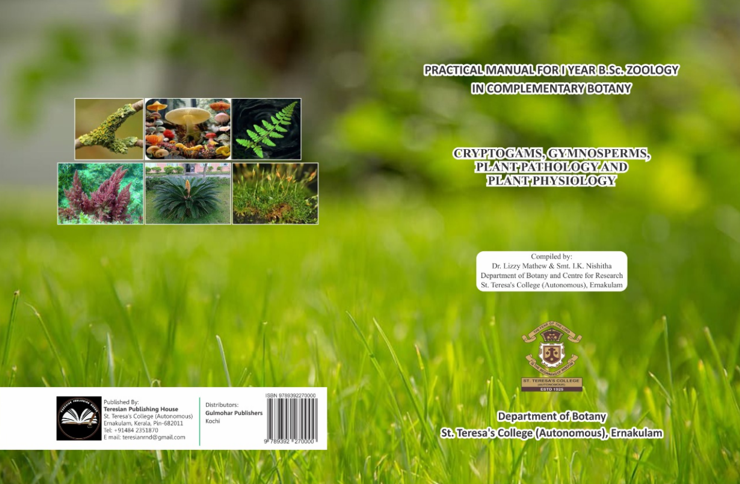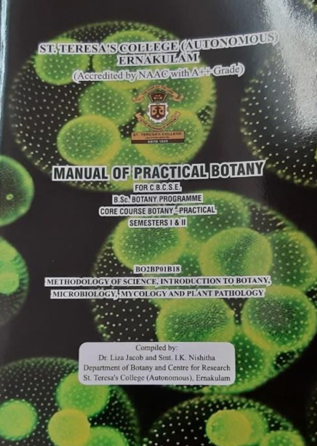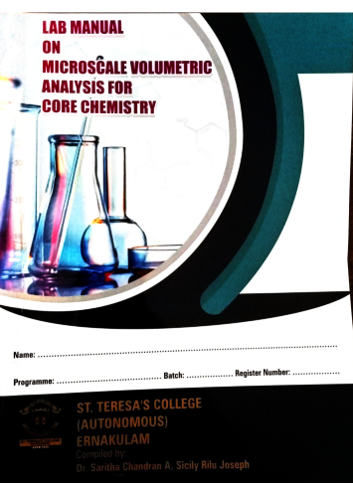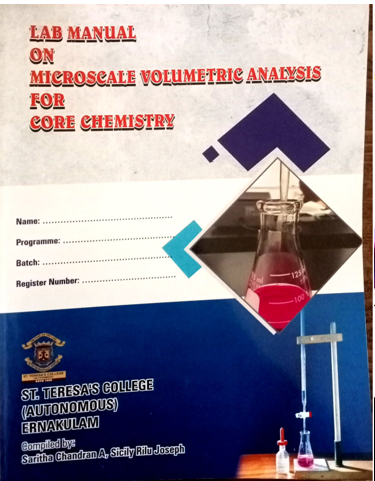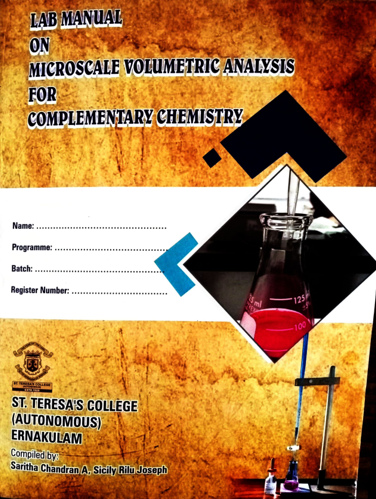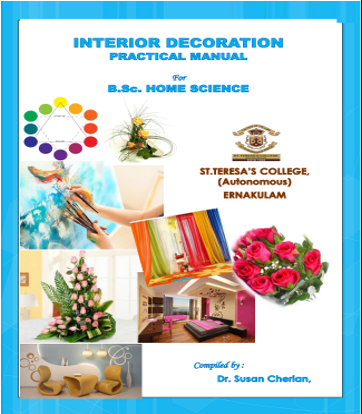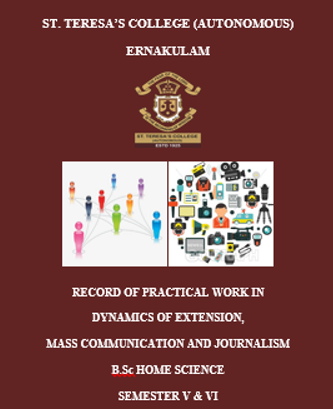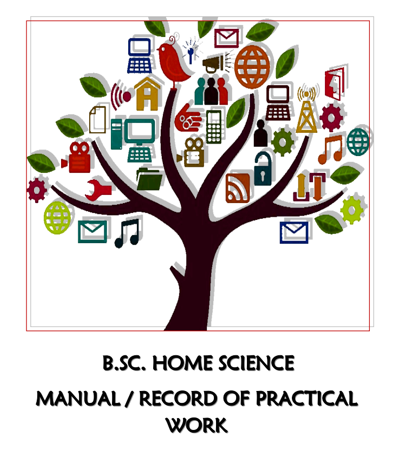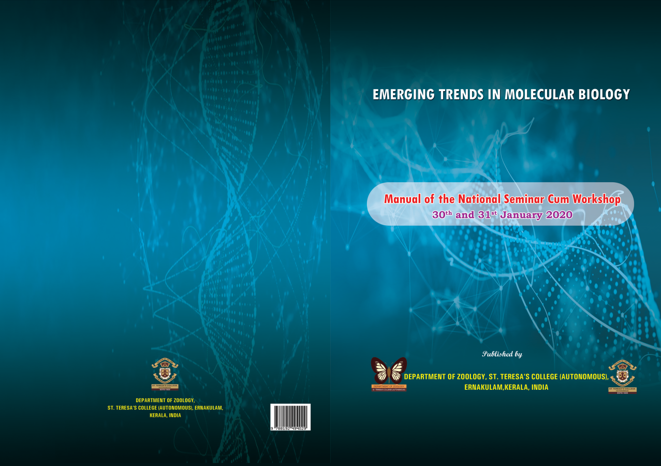DBT Star College Scheme

DBT STAR COLLEGE SCHEME grant has a multi-sectorial approach that supports colleges and universities offering undergraduate education to improve science teaching across the country.
This Scheme was launched in the year 2008 by the Department of Bio-Technology, Ministry of Science and Technology, Government of India
- Improve critical thinking among students.
- Encourage ‘hands-on’ experimental science at the undergraduate level in basic science subjects.
- Encourage more students to take up higher education in science.
- Support for developing infrastructure for academics and laboratory activities.
- Stimulate teaching and provide unique exposure to students to experimental science.
The college was sanctioned the prestigious DBT STAR COLLEGE SCHEME funding grant in November 2017. The period of the scheme was for 3 years and the proposal was to conduct training sessions, seminars, conduct and involvement of workshops, Faculty Improvement Programmes in Biotechnology and Bioinformatics which will equip the students and teachers in understanding the latest tools and techniques related to the field. The five participatory departments of the scheme were Botany, Chemistry, Home Science, Physics, and Zoology. The scheme supported the improvement of the laboratory facilities by utilizing the fund for the purchase of sophisticated equipment, glassware, and chemicals. An innumerable number of college students and school students are the beneficiaries. Some training programs also witnessed the parents as benefactors.
The scheme was completed successfully in November 2020. The yearwise annual reports of STAR COLLEGE SCHEME, the SOP’s developed, and Lab manuals are made available in the College website.
SOP
To deliver the benefits of the scheme to the benefactors in a nominal mode, an SOP has been developed comprising various sub procedures at different levels in the overall structure. It includes:
A. Planning the process of implementation of the scheme at multi-levels- College, department.
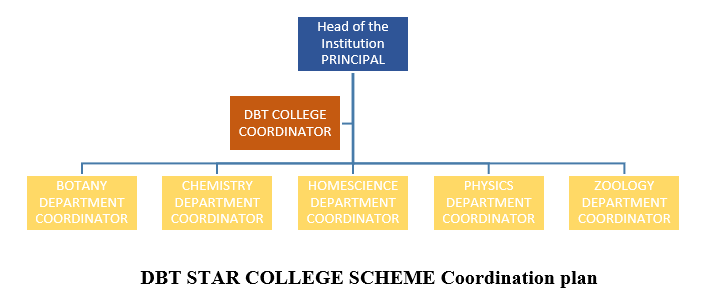
B. Allocation of funds to the participatory departments.
- Conducted meetings to identify the department-wise requirements to meet the vision of the DBT STAR Scheme.
- Distribution of funds based on the department’s need for the purchase of equipment and lab chemicals and glassware
C. Purchase of the equipment and Lab items for each department.
- A department meeting was conducted to identify the areas that required specific intervention for enhanced learning experience in students.
- Additional laboratory equipment required for the new topics in practical sessions and for carrying out projects was identified.
- Quotations were invited for the purchase of equipment
D. Planning & Conduct of the programs at the Department level.
- The subject themes for workshops/seminars/training were discussed.
- External resources for carrying out the workshops/seminars/training were identified.
- An action plan was charted.
- Committees involving teachers and students headed by the faculty coordinator were formed for the smooth conduct of the programmes.
E. Distribution of in-kind benefits to student & outreach benefactors.
- Various programmes were organised for the benefit of the faculty/students/school students/parents.
F. Validate the effectiveness at the Beneficiary level through feedback forms to College/Department/Faculty/student/outreach benefactors.
- Feedback forms were filled out by the attendees to understand the effectiveness of each program.
- In-house program feedback was understood by the representative student who spoke at the end of the program.
Annual Reports
Botany Department
LAB MANUAL -1:
CRYPTOGAMS, GYMNOSPERMS, PLANT PATHOLOGY, AND PLANT PHYSIOLOGY
LAB MANUAL -2:
METHODOLOGY OF SCIENCE, INTRODUCTION TO BOTANY, MICROBIOLOGY, MYCOLOGY AND PLANT
Chemistry Department
STANDARD OPERATING PROCEDURE was prepared for the following:
- Two-burette volumetric titration for UG Sem I and II
- Microscale analysis of organic compounds for UG Sem III and IV
III. Laboratory Safety and First-Aid
For I and II above, the following SOP was adopted:
- Purpose: Develop a Microscale analysis technique for UG first and second-year practical curriculum.
- Introduction: Microscale analysis is the green alternative to the current UG chemistry practical syllabus. It helps in reducing the usage and wastage of chemically significantly. Double burette titration uses only 10 ml of each of the reactants, as opposed to the 80 ml used in the conventional volumetric analysis. Similarly, microscale organic analysis uses only 10 to 50 microlitres of organic reagents.
- Workshops in Microscale analysis techniques are organized for the students, faculty, and lab assistants.
- Students are trained in laboratory safety procedures and First-Aid before the practical classes commence.
- Lab manuals for each semester are provided to the students. Every batch of students will get 2 hours of lab sessions each week. The students will perform the experiments, record the data and complete the calculations for each session and submit them for valuation.
- Student progress will be monitored by the faculty.
- Exams will be conducted as per the college academic schedule.
LAB MANUAL -1:
FIRST AID AND SAFETY MEASURES IN THE LABORATORY

LAB MANUAL -2:
MICROSCALE VOLUMETRIC ANALYSIS FOR CORE PAPER
(First Edition Published In 2019 & Second Edition In 2021)
LAB MANUAL -3:
MICROSCALE VOLUMETRIC ANALYSIS FOR COMPLEMENTARY PAPER
(First Edition Published In 2019 & Second Edition In 2021)
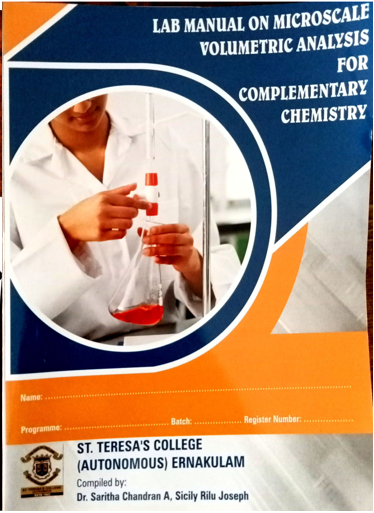
Home Science Department
LAB MANUAL 1:
INTERIOR DECORATION
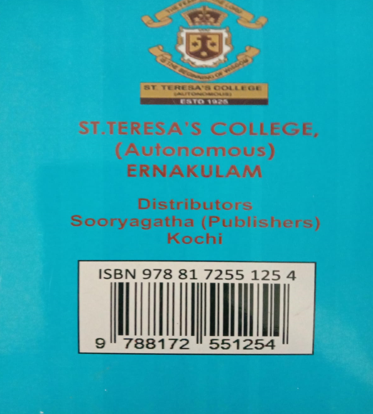
LAB MANUAL 2:
TEXTILE, FASHION DESIGNING & APPAREL PRODUCTION
LAB MANUAL -3:
DYNAMICS OF EXTENSION, MASS COMMUNICATION & JOURNALISM LINK
LAB MANUAL -4:
FAMILY AND RESOURCE MANAGEMENT LINK
Zoology Department
DEPARTMENTS




